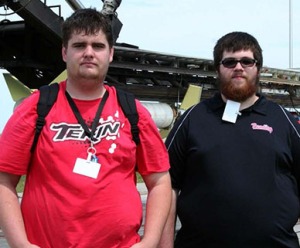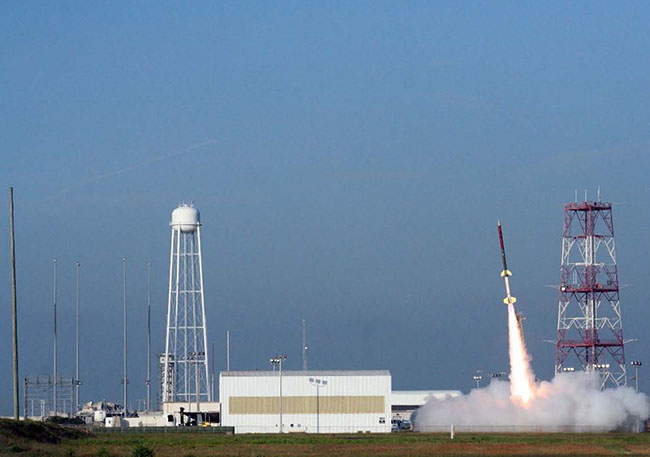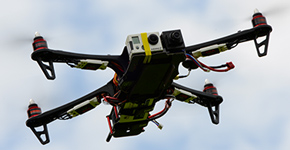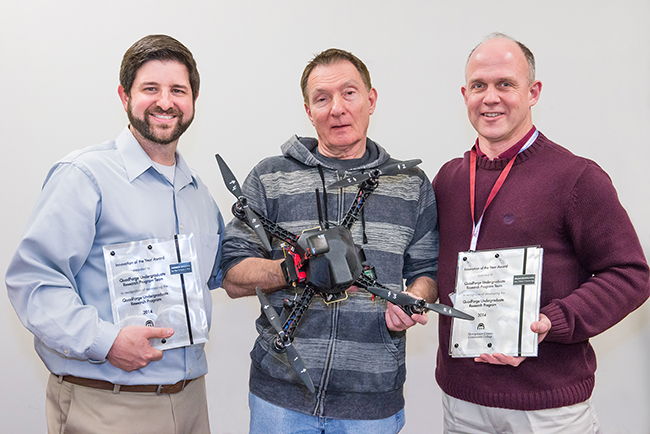by Diane VanDyke
Two Montgomery County Community College students recently joined students from Temple University College of Engineering to travel to NASA’s Wallops Flight Facility on Wallops Island, Virginia, to experience the NASA RockOn rocket launch on June 26.
Paul Loizeaux, Harleysville, and Nate Francis, Lansdale, who are both enrolled in MCCC’s EGR 292 Engineering Research II course during the summer, visited Temple where engineering students are designing an air sample acquisition payload. This payload was created to gather samples from at least 28 different altitudes throughout the flight to determine the amount of greenhouse gases in the atmosphere at different levels.
RockOn is a NASA grant-funded rocket launch opportunity that allows the participants to gain hands-on experience developing scientific payloads to collect data. Temple University College of Engineering has participated in the program for six years, under the guidance of Temple Associate Professor of Electrical Engineering Dr. John Helferty, who is also the Director of the Student Space Exploration and Environmental Systems Lab.
Loizeaux and Francis were excited to participate in this unique opportunity.
“We want to thank the Quadforge team and Temple University who made this unforgettable trip possible, and who gave us an insight into the power of engineering at our student level and allowed us to observe the collaborative bond between higher education and prestigious organizations like NASA,” they said in their report about the project.
At the College, Loizeaux and Francis have been working on the development of a Vertical TakeOff and Landing Unmanned Aerial Vehicle (VTOL UAV), which is commonly referred to as a quadrotor.
Students learned, under the guidance of VTOL UAV Project Lead at MCCC’s Engineering Department Jean-Jacques Reymond, the importance of collaboration in the field of research and development. Reymond was the former head of IBM GSA Laboratories in Sydney, Australia, and the Industry Pilot Laboratory, an incubator of emerging technologies in Switzerland.
Last year for example, students prepared an educational partnership proposal for UltraTech International to use its super hydrophobic coating, Ultra Ever-Dry, on the VTOL UAV. Ultra Ever-Dry uses a two-coating system that creates a rough, uneven surface, allowing a layer of air to surround the coated object and repel water and oils. Ultra Ever-Dry is featured in National Geographic’s Showdown of the Unbeatables and in Popular Science magazine.
Students applied Ultra Ever-Dry on the VTOL UAV and successfully weatherized the quadrotor, allowing it to fly in all types of weather. They hope to share this weatherization process with students at Temple in the future for weatherization of the payload.
For more information about Montgomery County Community College’s Quadforge Rotor project, visit quadforge.net/about.
For more information about Temple University College of Engineering RockSat-C Program, visit engineering.temple.edu/senior-design/rocksat-c-rocket-power.
For more information about UltraTech International, Inc., visit spillcontainment.com.




